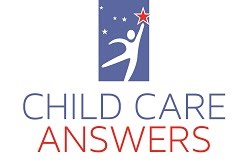At Child Care Answers, many families have concerns and issues that cannot be addressed through our traditional child care referral process. Families of children with special needs are offered the opportunity for what we call an ENHANCED REFERRAL. These families are searching for care, where the traditional questions we promote as indicators of quality early childhood education and care are not enough to address their concerns. As Inclusion Specialist, I am available to assist families of children with special needs and providers who are caring for children with special needs answer those more indepth questions and concerns.
Recently a family called Child Care Answers looking for child care for a youngster with a severe peanut allergy. The child’s doctor had recommended a completely peanut free facility; as this child has complete anaphylactic (ceases breathing due to constriction of airway, often very fast… and very serious) reactions to peanut exposure. Currently our database does not give us the ability to record this data or search by this criteria. SO, I am starting a new “speciality” list that will be available to parents who have this specific need. Child Care Answers will continue to leave the final selection of child care to the family, and will continue to assist parents to decide what quality indicators are important to them, and we will never endorse or recommend any particular type of care or specific care provider. However, just as we maintain lists of coop preschools and Title XX locations separate from our main database for families who specifically request that information, I think given the increase in peanut and tree nut allergies it is to everyone’s benefit to keep a specialist listing for this as well.
Do you maintain peanut free classrooms? Is your facility completely peanut free? Please let me know. Email or call with your site information and I will add you to the specialist list.
Peanut Allergies DID YOU KNOW? (From The Food Allergy and Anaphylaxis Network)
Some Hidden Sources of Peanuts
Artificial nuts can be peanuts that have been deflavored and reflavored with a nut, such as pecan or walnut. Mandelonas are peanuts soaked in almond flavoring.
Arachis oil is peanut oil.
African, Chinese, Indonesian, Mexican, Thai, and Vietnamese dishes often contain peanuts or are contaminated with peanuts during the preparation process. Additionally, foods sold in bakeries and ice cream shops are often in contact with peanuts.
Many brands of sunflower seeds are produced on equipment shared with peanuts.
For more information on peanut and other food allergies please visit
www.foodallergy.orgIf you have questions about caring for a child with a severe food allergy or are a parent of a child with a sever food allergy and have questions about location care, please do not hesitate to contact me at Child Care Answers.








